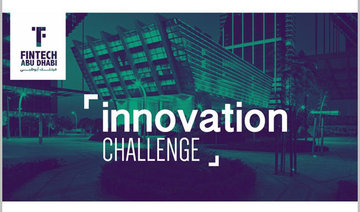LONDON: The rising influence of financial technology (fintech) firms in the Gulf could eventually threaten jobs and profitability at the region’s banks, warned ratings agency S&P Global.
With technological advancements helping fintech companies to offer faster and cheaper ways for customers to transfer money or pay bills, traditional banks will be under pressure to keep up with the competition, the report said.
“This would push some banks to adjust their operations through increased digitalization, branch network reduction, and staff rationalization,” said Mohamed Damak, S&P Global Ratings credit analyst in the report.
The biggest impact of fintech innovations will be felt by banks’ retail business lines, such as money transfer and foreign-currency exchange, the agency said in a report on Oct. 17.
Services such as money transfers have typically proven to be a lucrative business for Gulf banks due to the region’s large expatriate population that regularly sends funds back to their home countries.
Lending and personal or institutional finance services are two other areas threatened by fintech.
Peer-to-Peer lending and crowdfunding platforms — which directly link clients in need of financing with financiers via digital platforms — could potentially remove the need for a traditional bank to act as the ‘middle man’ in the transaction.
Already, the region’s banks are starting to rethink their business model.
Mashreq Bank CEO Abdul Aziz Al Ghurair said on Tuesday that the bank would be ‘investing significantly” in new business models and further digitalization of services.
“In the future, banking will go digital,” he said in an official release on Oct. 17 which announced a 12 percent increase in the bank’s third-quarter profits.
In early October, Mashreq launched one of the region’s first full service digital branchless bank — Mashreq Neo — as well as a new new digital mobile wallet service called Mashreq Pay — that can be used to make purchases around the world.
The Dubai-based bank has also started to use robotics in the third quarter to manage open account trade payments, according to the bank’s Q3 statement.
The bank’s move to further digitalization will lead to staff cuts, with Al Ghurair telling Reuters in October that the bank plans to halve the number of branches over the next three years.
Yet, the S&P report does not see Fintech as a “major disruption” on lending activity in the corporate sector. It will also not have a ‘significant influence’ on the agency’s ratings for Gulf banks.
“For the moment, we view fintech as the new competitor on the block, but not yet a game changer for banks’ operations in the GCC,” the report said.
Max Di Gregorio, partner, financial services digital leader at PwC Middle East, agreed that the immediate threat is limited, while forecasting that banks will ultimately benefit from working with rather than against Fintech companies.
“[The] fintech ecosystem is still underdeveloped in the GCC and new entrants are not posing evident challenges to the GCC banking industry for the moment,” he told Arab News.
“In the mid-short term evolution of regulatory framework, technology infrastructure and availability of venture capital and incubators might accelerate fintech growth also in our region. However the trend that we see at global level is toward innovative models of collaboration between fintech and banks rather than competition.”
S&P’s report said the long-term impact of Fintech will depend on how successfully banks change their business models, as well as the response from regional financial authorities.
“We believe fintech will increasingly become a force to be reckoned with,” the report said.
Financial authorities have already started to respond. The Dubai International Financial Center (DIFC) launched a Fintech Hive this year — which runs ‘accelerator’ programs allowing technology companies to work with established financial institutions to test out their products in a market with a restricted regulatory environment.
Abu Dhabi Global Market launched a similar scheme called the ‘Regulatory Laboratory’ last November.
















